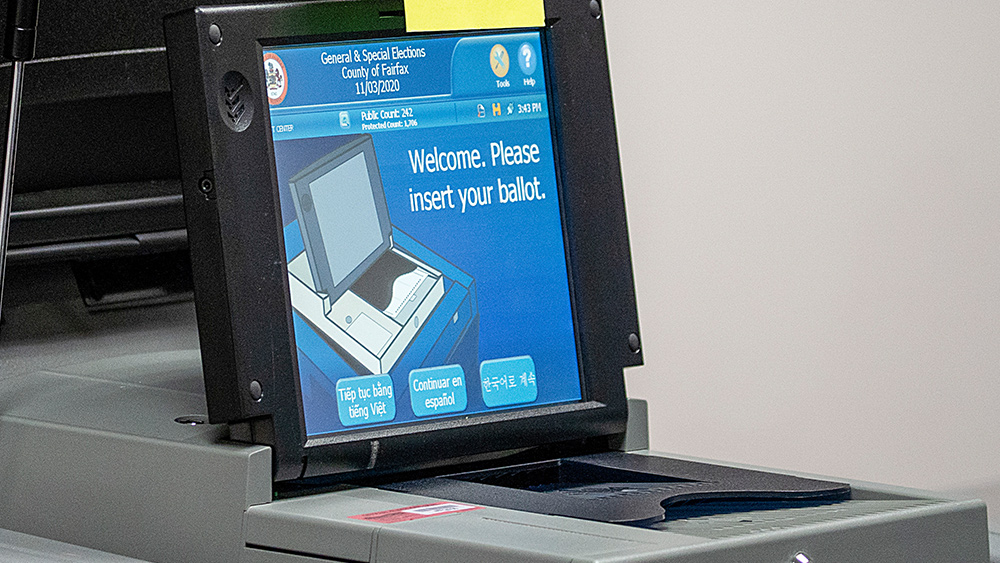FBI special agent warns: Crypto fraudsters exploit LinkedIn to dupe unsuspecting users
06/21/2022 / By Mary Villareal

Sean Ragan, a Federal Bureau of Investigation (FBI) special agent, warned that fraudsters are exploiting the professional networking website LinkedIn to deceive unsuspecting users and lure them into cryptocurrency investment schemes.
The fraudsters, who usually pose as professionals, create fake profiles and reach out to LinkedIn users. They initiate small talk over the platform’s chatbox until eventually, they offer to help the victims make money through crypto investment.
LinkedIn is supposedly a trusted platform for business networking, so people tend to believe that the investments are legitimate. The fraudsters direct the users to legitimate investment platforms for crypto, but after several months, they ask them to move the investments to sites controlled by the fraudster and funds are drained from their accounts.
Ragan said that this is how the criminals make money, and it is how they direct their time and attention to. “And they are always thinking about different ways to victimize people, victimize companies. And they spend their time doing their homework, defining their goals and strategies, and the tools and tactics that they use,” he said. (Related: BitConnect shuts down after accusations it was running a cryptocurrency Ponzi scheme.)
The FBI has seen an increase in this type of investment fraud, which is different from long-running scams that involve a more romantic approach. The FBI also confirmed that there are ongoing investigations, but the bureau cannot disclose open cases.
LinkedIn acknowledged that there had been a recent uptick of fraud on its platform, and vowed to do better in enforcing its policies.
“Fraudulent activity, including financial scams, are not allowed on LinkedIn. We work every day to keep our members safe, and this includes investing in automated and manual defenses to detect and address fake accounts, false information and suspected fraud,” the platform said in a statement.
“We work with peer companies and government agencies from across the world with the goal of keeping LinkedIn members safe from bad actors. If a member encounters or is the victim of a scam we ask that they report it to us and to local law enforcement.”
Oscar Rodriguez, who serves as LinkedIn’s senior director of trust, privacy and equity, said that trying to identify which accounts are real and fake is very difficult.
“One of the things that I would really love for us to do more is get into proactive education for members. Letting members know or basically allowing them to understand the risks that they might face,” he said.
Nearly 32 million fake accounts detected on LinkedIn since 2021
LinkedIn, which has around 830 million members in more than 200 countries, admitted to removing over 32 million fake accounts from the platform in 2021, as per its annual fraud report.
From July to December 2021, its automated defenses also stopped 96 percent of all fake accounts, with a total of around 11.9 million stopped at registration, while 4.4 million were proactively restricted. Users also reported around 127,000 fake profiles, which were also removed.
However, LinkedIn said it does not provide estimates on how much money was stolen from members of the platform. A report by the Federal Trade Commission mentioned that over 46,000 people reported losing over $1 billion in cryptocurrency scams since the beginning of 2021. Nearly half the people who reported losing digital currencies in the scam said it started with an ad, post or message on the platform.
Several victims that have been defrauded on the platform said their losses ranged from $200,000 to $1.6 million. One victim said these fraudsters hide behind successful companies. That is one of the biggest reasons the victims accepted invites. (Related: South Korea’s third-largest cryptocurrency exchange seized due to allegations of extreme fraud.)
“We’ve lost a lot of money, and it’s not just all of our savings. People have lost their houses and their car loans. It’s life-destroying and soul-crushing,” another victim who claimed to have lost $700,000 said.
Ragan said he understands the victims’ pains and told them that they should not blame themselves. “It’s not their fault that they were victimized, it’s the perpetrator’s fault. It’s the criminal’s fault. They spend their nights and days thinking about ways to victimize and defraud people. That’s how they make their money through illicit gains. And the people that fall victim to it, they’re victims.”
Visit CryptoCult.news for more news related to cryptocurrency.
Watch the video below to know more about cryptocurrency and how it works.
This video is from the I am channel on Brighteon.com.
More related stories:
Cryptocurrency scam hits hundreds of small investors.
Cryptocurrency blockchains being sabotaged in “51 percent attacks” to steal virtual coins.
Bitcoin investors continue to take a bath as leading cryptocurrency tanks.
Sources include:
Submit a correction >>
Tagged Under:
bitcoin, bitcoin scam, bitconnect, Collapse, computing, conspiracy, crime, cryptocurrency, cyberwar, deception, evil, finance, fraud, Glitch, information technology, insanity, investing, investment schemes, LinkedIn, scam, theft
This article may contain statements that reflect the opinion of the author
RECENT NEWS & ARTICLES
COPYRIGHT © 2017 GLITCH.NEWS
All content posted on this site is protected under Free Speech. Glitch.news is not responsible for content written by contributing authors. The information on this site is provided for educational and entertainment purposes only. It is not intended as a substitute for professional advice of any kind. Glitch.news assumes no responsibility for the use or misuse of this material. All trademarks, registered trademarks and service marks mentioned on this site are the property of their respective owners.



















